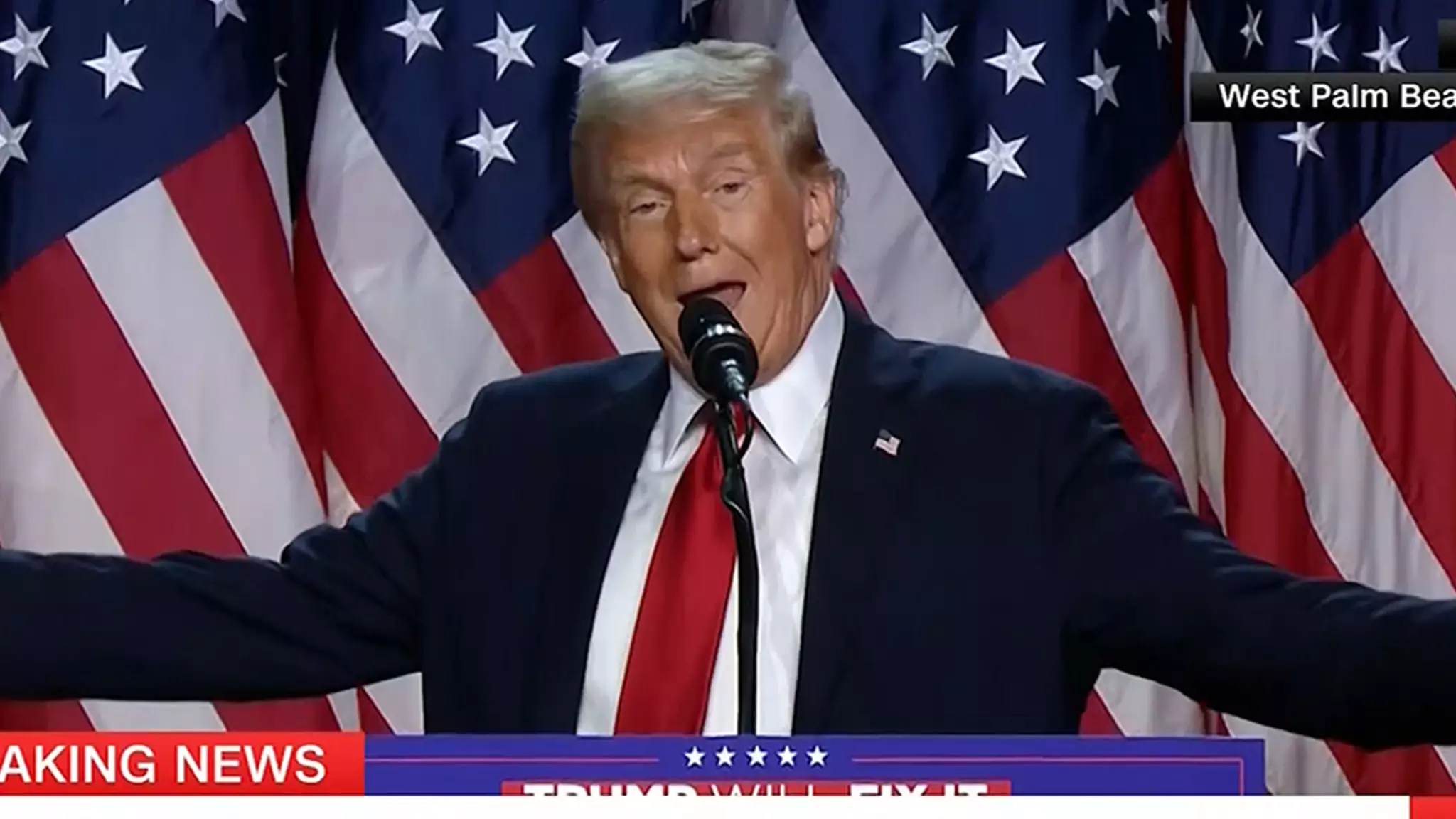The political landscape of the United States has undergone a seismic shift with Donald Trump’s recent election victory, marking his return to the White House as the 47th President. Just past midnight on the West Coast, FOX News was the first to announce Trump’s triumph over Vice President Kamala Harris, confirming electoral votes had surpassed the crucial 270 mark. This pivotal moment in U.S. history is notable not only for Trump’s return after his previous term but for the implications of his win in shaping the future political narrative of the nation.
Even before the official announcement, Trump was already addressing a jubilant crowd in West Palm Beach, flanked by his vice presidential pick, J.D. Vance. His speech emphasized themes of national healing amid a fiercely contested electoral campaign. Trump proclaimed that his victory symbolized not just success in the electoral college but was also reflective of a popular mandate, as he emphasized significant wins in traditionally competitive states like Georgia and North Carolina. His remarks were laced with moments of gratitude towards his supporters, including prominent figures from various spheres like Robert F. Kennedy Jr. and Elon Musk, further highlighting the diverse coalition that seemed to converge behind his campaign.
Trump’s win is a historical milestone that positions him alongside Grover Cleveland, the only other U.S. president to reclaim the presidency after a decisive loss. This notable fact, that Cleveland achieved in the 1890s, reinforces the narrative of Trump’s rare political resilience. Moreover, his victory carries the weight of being the first convicted felon to ascend to the presidency, highlighting the contentious nature of his political journey. His previous legal challenges, including a sentencing that was supposedly set to occur soon, illustrate the complexities entwined in his political narrative and the electorate’s response to such controversies.
The aftermath of the election has sparked a dual narrative. While Trump’s supporters revel in the victory, the opposition remains tentative, as evidenced by Harris’ lack of immediate concession. This hesitance underscores the persistent polarization that characterizes contemporary American political discourse. Not only does Trump enter office with a mandate from the electorate, but he also faces an equally mobilized opposition, presenting a challenge for unity moving forward.
As Trump prepares for his next term, the expectation is for a bold agenda aimed at uniting the nation. Whether he can navigate the pressures from both sides of the political spectrum will be a defining feature of his upcoming presidency. His ability to push forward with effective policies and engage in genuine dialogue may be crucial, not just for his political survival, but for the continuity of democratic processes within the country. The nation awaits the unfolding developments of what a second Trump presidency will entail and the legacy he wishes to carve out upon his return.
Donald Trump’s election win signifies a remarkable chapter in American political history, reflecting both unresolved tensions and renewed possibilities for the future.

